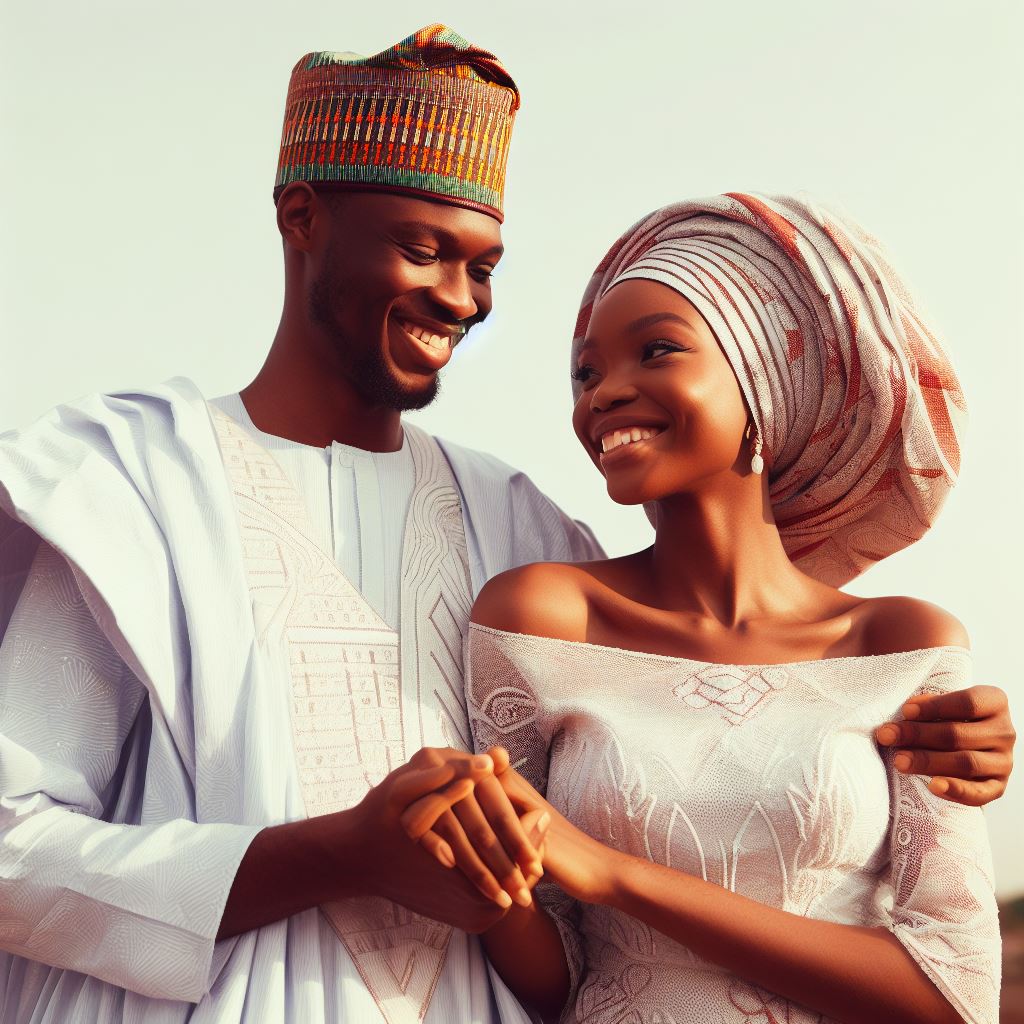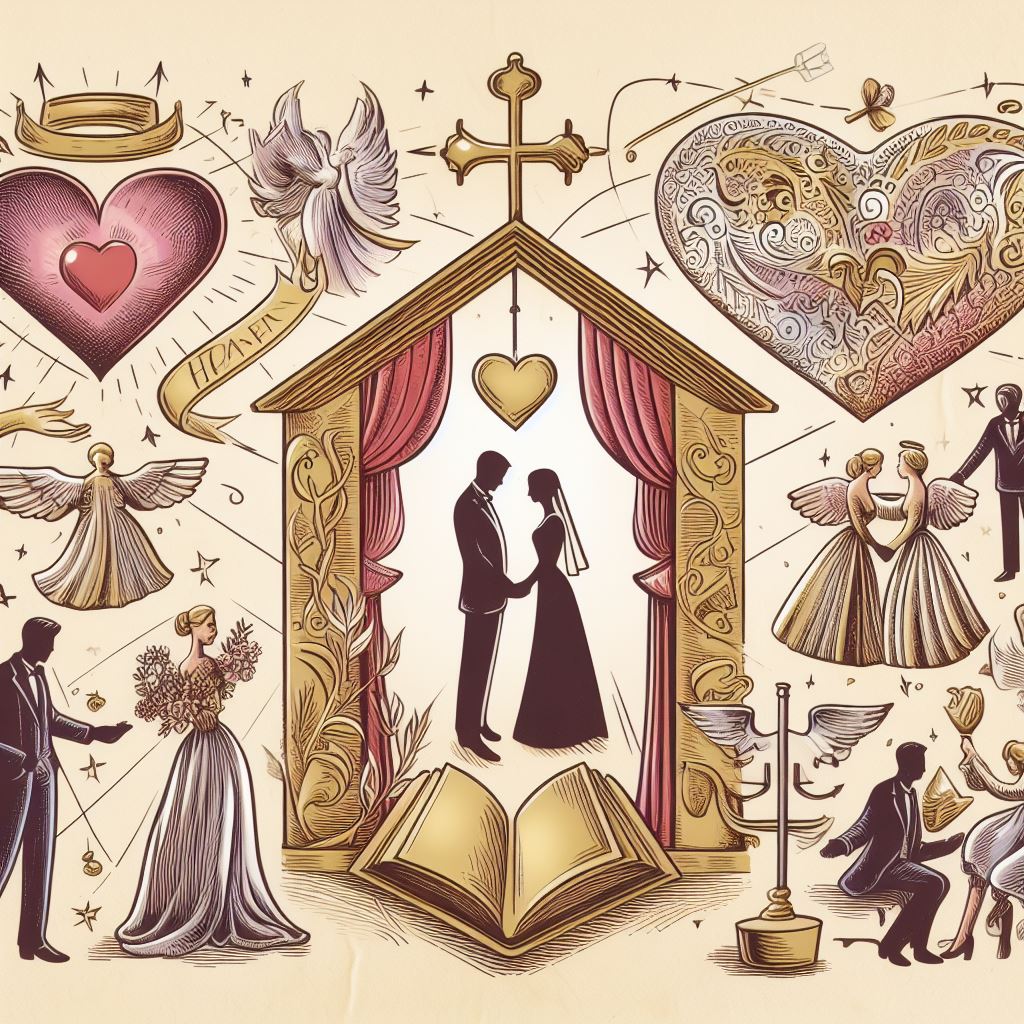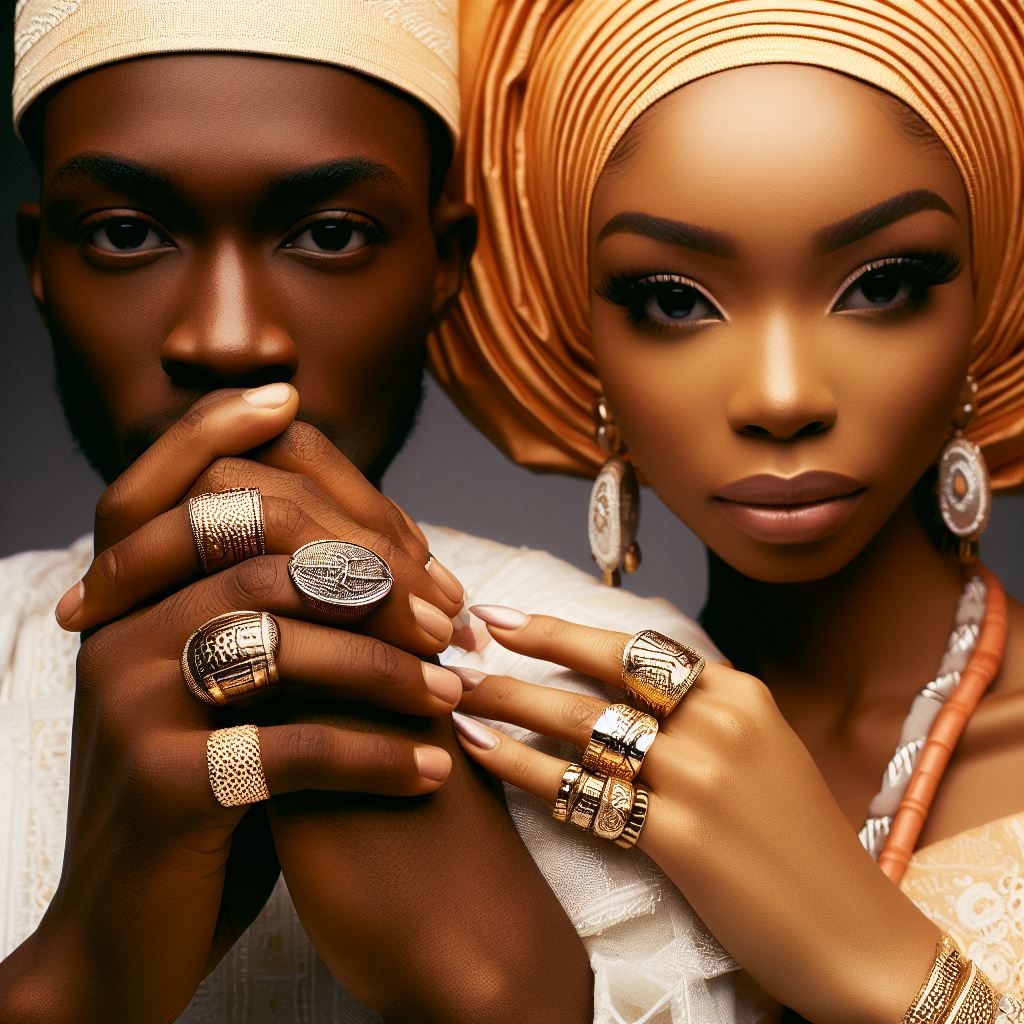Introduction
Explanation of the Topic
Marriage is a sacred institution with deep roots in Nigerian culture and tradition.
In Nigeria, weddings are grand celebrations that bring families and communities together in joyous union.
However, the journey from the wedding day to years of unity is not without its own set of challenges and transformations.
Brief overview of the Nigerian marriage culture
In Nigerian culture, marriage is seen as a joining of two families rather than just two individuals.
The wedding ceremony itself is a vibrant affair filled with colorful traditional attire, energetic music, and delicious cuisine.
It is a time for families to showcase their wealth, social status, and cultural heritage.
The journey from wedding day to years of unity in Nigeria is a transformative experience that involves various stages and challenges
Once the celebrations are over, the newlyweds embark on a lifelong journey of building a strong and harmonious relationship.
This journey is not always smooth sailing, as it involves navigating through different stages and overcoming various challenges.
The first stage of this journey is the honeymoon phase, where the couple experiences the initial bliss and excitement of being married.
However, as time goes on, the honeymoon phase gives way to the reality of married life.
The couple must learn to compromise, communicate effectively, and adapt to each other’s habits and personalities.
Another challenge that couples in Nigeria often face is the pressure to have children.
In Nigerian culture, children are seen as a blessing and a symbol of a successful marriage.
Couples who struggle with infertility or are unable to conceive may face societal judgment and family pressure.
Despite these challenges, the journey from wedding day to years of unity in Nigeria can also be a transformative experience.
Couples learn valuable lessons about love, forgiveness, and perseverance. They grow together, support each other, and create a strong foundation for their future generations.
In essence, the journey from the wedding day to years of unity in Nigeria is a complex and transformative experience.
It requires dedication, understanding, and patience. But through the challenges and transformations, couples in Nigeria can build a strong and lasting union that stands the test of time.
Traditional Nigerian Wedding Customs
Description of traditional pre-wedding rituals
- Introduction of families: The families of the bride and groom come together and are introduced to each other.
- Dowry negotiation: The bride’s family and the groom’s family negotiate the terms of the dowry to be paid.
- Traditional engagement ceremony: A formal ceremony where the couple exchanges gifts and declares their intent to marry.
Overview of the wedding day customs
- Traditional attires and accessories: The bride and groom wear traditional clothing and adorn themselves with cultural accessories.
- Cultural dances and music: There are traditional dances and music performances throughout the wedding celebrations.
- Importance of symbolic rituals: Various rituals are performed to symbolize unity, blessings, and fertility.
Significance of these customs in building a foundation for unity in marriage
Traditional Nigerian wedding customs play a vital role in building a strong foundation for unity in marriage.
These customs serve as a way to honor and preserve cultural heritage, fostering a sense of belonging and identity for the couple and their families.
During the pre-wedding rituals, the introduction of families allows for the blending of two different families into a cohesive unit.
This creates a sense of unity and builds a support system for the couple as they embark on their journey together.
The dowry negotiation is not just a financial transaction but represents the recognition and validation of the bride’s worth.
It also signifies the commitment and responsibility of the groom in taking care of his wife.
This negotiation process strengthens the bond between the families and ensures mutual respect and understanding.
The traditional engagement ceremony holds immense cultural significance.
The exchange of gifts symbolizes the couple’s commitment to one another and their families.
It serves as a public declaration of their intent to marry and builds a foundation of trust and accountability.
On the wedding day, the couple’s choice to wear traditional attires and accessories showcases their pride and appreciation for their cultural heritage.
This celebration brings together various cultural dances and music performances, creating an atmosphere of joy, unity, and vibrant celebration.
The importance of symbolic rituals
The pouring of libations, tying of the nuptial cord, breaking of kolas, and sharing of palm wine all hold deep cultural and spiritual meanings.
These rituals symbolize unity, good fortune, fertility, and blessings for the couple’s life together.
By embracing these customs, couples in Nigeria are reminded of the importance of their heritage and cultural values.
These customs help strengthen their bond, as they navigate the challenges and joys of married life, providing a strong foundation for the years of unity that lie ahead.
In fact, traditional Nigerian wedding customs are not just ceremonies and rituals, but powerful tools that promote unity, respect, and a celebration of cultural identity.
These customs bring families together, validate the worth of the bride, and create a tangible foundation for a successful and harmonious marriage.
Read: Celebrating Anniversaries: Thanking God for Years Together
Initial Challenges after the Wedding Day
Adjusting to married life
- Transition from singlehood to partnership.
- Establishing new routines and roles.
- Communication and compromise.
Interference and external pressures
- Involvement of extended family members.
- Influence of societal expectations.
- Financial pressures and expectations.
Importance of resilience and problem-solving during this stage
- Building a strong emotional connection.
- Establishing boundaries with external influences.
- Developing shared goals and values.
After the grand celebration of the wedding day, couples in Nigeria often face initial challenges as they embark on their journey towards unity and a lifelong commitment.
This section explores the difficulties encountered during this stage of married life, along with strategies to overcome them.

Adjusting to married life
1. Transition from singlehood to partnership
Moving from being single to sharing a life with a partner can be overwhelming.
Couples need to adapt to the changes in their lifestyle and prioritize the needs and desires of each other.
2. Establishing new routines and roles
Newlyweds must navigate through their daily routines by creating a balance between individual responsibilities and shared tasks.
Assigning roles and dividing household chores can help maintain harmony.
3. Communication and compromise
Effective communication is crucial to building a strong foundation for a successful marriage.
Couples should learn to express their needs and concerns openly while also being willing to compromise and find mutually beneficial solutions.
Interference and external pressures
1. Involvement of extended family members
In Nigeria, extended families often play a significant role in a couple’s life.
Overcoming interference from relatives and finding a healthy balance between family obligations and personal space can be challenging.
2. Influence of societal expectations
Societal expectations can place pressure on newlyweds to conform to certain norms and roles.
It is vital to prioritize their own values and beliefs while not succumbing entirely to external pressures.
3. Financial pressures and expectations
Financial stability is a common concern for couples starting their married life. Balancing financial expectations from both sides, managing expenses, and planning for the future requires open and honest communication.
Importance of resilience and problem-solving during this stage
1. Building a strong emotional connection
Couples must invest time and effort in nurturing their emotional bond.
Through open communication, empathy, and support, they can cultivate a deep connection that can withstand challenges.
2. Establishing boundaries with external influences
Setting clear boundaries with extended families, friends, and societal expectations is crucial.
Couples need to protect their marriage by prioritizing their relationship and making decisions together.
3. Developing shared goals and values
Creating shared goals and values helps couples align their aspirations and navigate challenges together.
Shared values provide a solid foundation and guide their decisions, ensuring unity and strength throughout their journey.
Most importantly, the initial challenges after the wedding day in Nigeria require couples to adjust to married life, manage external pressures, and develop resilience and problem-solving skills.
By embracing effective communication, compromising, and building a strong emotional connection, couples can overcome these challenges and embark on a fulfilling journey towards long-lasting unity.
Read: The Cultural Significance of Marriage in Nigeria: A Deep Dive
Navigating the Relationship through the Years
Building a strong foundation
1. Continual growth and learning
In order to maintain a strong and lasting relationship, couples must prioritize personal growth and ongoing education.
By continuously learning and evolving, they can ensure that their bond remains strong and meaningful.
2. Adapting to life changes together
Life is full of unexpected twists and turns, and couples need to be able to adapt and face these changes as a team.
Whether it’s moving to a new city, changing careers, or starting a family, the ability to navigate these transitions together is crucial.
3. Fostering intimacy and emotional connection
Physical intimacy and emotional connection are vital aspects of a successful relationship.
By prioritizing quality time together, open communication, and acts of love and affection, couples can cultivate a deep and lasting emotional bond.
Overcoming challenges and obstacles
1. Handling disagreements and conflicts
Disagreements and conflicts are a natural part of any relationship.
However, it is essential for couples to develop effective communication skills and conflict resolution strategies to overcome these challenges and maintain harmony.
2. Addressing cultural and religious differences
In a diverse country like Nigeria, couples often come from different cultural and religious backgrounds.
It is important to acknowledge and respect these differences, while finding common ground and creating a harmonious blend of traditions.
3. Supporting each other’s personal goals and ambitions
Individual growth and fulfillment are crucial for both partners in a relationship.
By supporting each other’s personal goals and dreams, couples can build a strong foundation of trust and mutual support that allows them to thrive both individually and as a couple.
Importance of mutual respect, trust, and empathy in sustaining unity
Mutual respect, trust, and empathy are the cornerstones of a strong and lasting relationship.
Without these qualities, a couple will struggle to navigate the challenges and maintain unity in their journey together.
Respecting each other’s opinions, choices, and boundaries is essential for fostering a healthy relationship.
Trust forms the foundation of a strong bond, and without it, doubts and insecurities can erode the unity between partners.
Empathy allows couples to understand and validate each other’s feelings, creating an environment of emotional support and understanding.
Basically, navigating the journey from wedding day to years of unity in Nigeria requires intentional efforts from both partners.
Building a strong foundation, overcoming challenges, and nurturing mutual respect, trust, and empathy are key ingredients for a successful and fulfilling relationship.
Read: Understanding Nigerian Marriage Traditions and Rites
Celebrating Years of Unity
Milestones and anniversaries
Reflecting on the journey is important to appreciate the growth and challenges overcome.
Renewing vows and reaffirming commitment help strengthen the bond between couples.
Celebrating as a community fosters a sense of togetherness and support.
Sharing wisdom and advice
Experienced couples play a vital role in mentoring others, offering guidance and support.
Passing down cultural values and creating a legacy ensures the preservation of Nigerian traditions.
Emphasizing the importance of unity in Nigerian society promotes harmony and progress.
Read: Addressing Common Myths: ‘Marriage by Ordinance’ in Nigeria
Conclusion
Throughout this blog chapter, we have explored the journey from wedding day to years of unity in Nigeria.
We have witnessed the trials and triumphs that couples face as they navigate the challenges of marriage.
From the excitement and joy of the wedding day to the inevitable conflicts and disagreements that arise over time, Nigerian couples experience a range of emotions and experiences.
But rather than allowing these challenges to tear them apart, they have emerged stronger and more united.
This journey is transformative in nature. It requires couples to learn and grow together, to compromise and communicate effectively.
It is through this shared experience that they develop a deeper understanding and appreciation for one another.
As we conclude, I would like to encourage our readers to prioritize and invest in their own marital relationships.
Just as couples in Nigeria have shown us the power of commitment and perseverance, we too can nurture and strengthen our own unions.
It is important to remember that a successful marriage requires effort from both partners.
We must be willing to prioritize our relationship, to actively listen and support one another, and to continuously work towards unity and understanding.
So, let us embark on our own journey towards years of unity, just as Nigerian couples have done.
Together, we can create lasting and fulfilling marriages that serve as a testament to the power of love and commitment.




